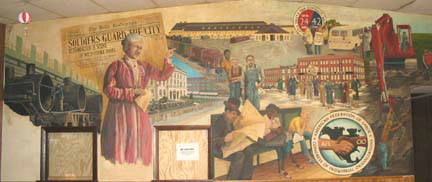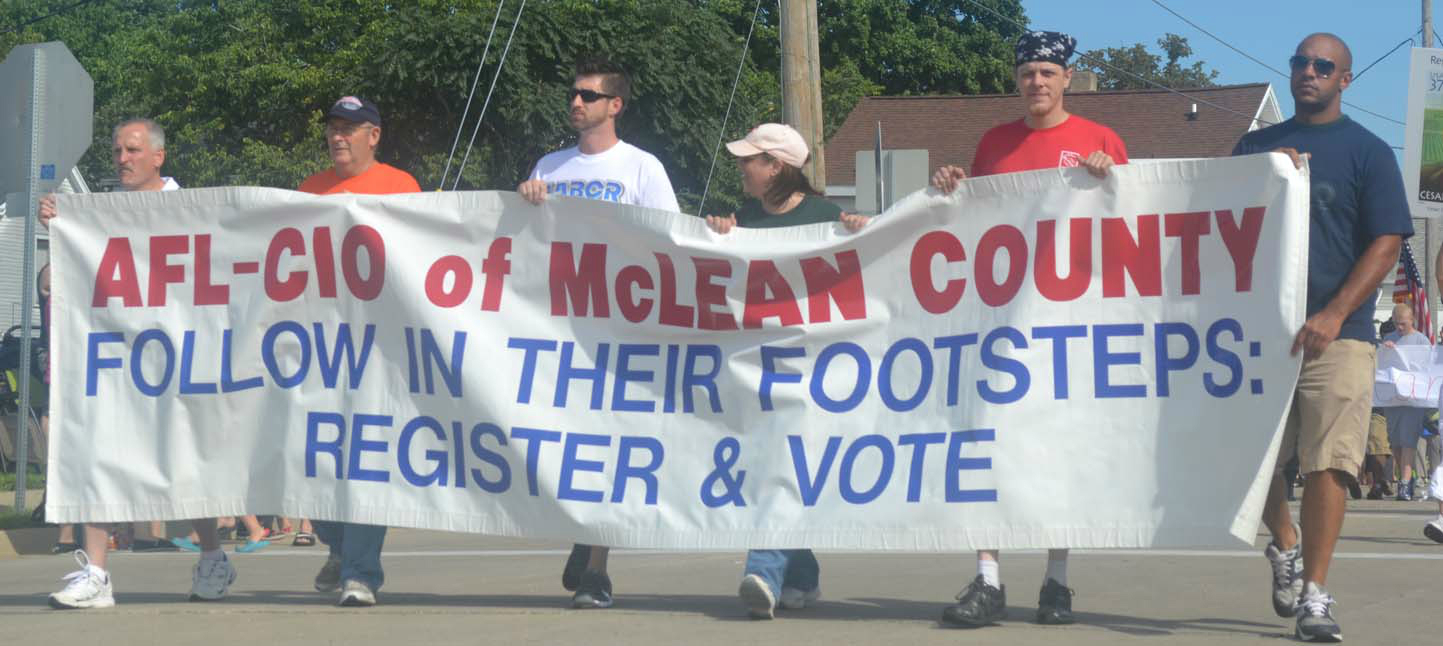|
Anger is a powerful emotion and the connecting link in Grown-up Anger: The Connected Mysteries of Bob Dylan, Woody Guthrie and the Calumet Massacre of 1913, by Daniel Wolff.
The three might seem an unlikely combination in a book that ranges through biography, musical criticism and labor history. Channeled anger – against inequality, injustice and disillusionment connects the three, as chapters interweave and jump topic.
Both Woody Guthrie and Bob Dylan created a character that sustained their creative genius. Guthrie (1912-1967) was a folk music original, who used his anger to write songs about the 1930s Dust Bowl, worker rights and and his most well known tune, This Land is Your Land.
Robert Zimmerman, a.k.a. Bob Dylan, grew up in Hibbing, Minnesota, the heart of red rock iron ore mining. Although Dylan and Guthrie both liked to put on working class airs, their family backgrounds were middle class, though Guthrie’s family lost wealth and status in the Oklahoma land and oil booms. In the early 1960s, Dylan idolized Guthrie and came to New York to see the bed-ridden singer, a tragic victim of Huntington’s chorea. Dylan’s first songs spoke to civil rights, war protest and other early 1960s issues, but the Nobel Prize winner soon veered to music that expressed more general personal and political frustrations, rather than specific causes.
And what this have to do with a 1913 worker tragedy in Calumet, Michigan?
Wolff skillfully weaves these stories together – Michigan copper mining and two musical biographies. Copper miners had struck valiantly in Michigan’s upper peninsula in 1913; originally successful, as winter’s cold descended, the miners lost. As a final, caring gesture, a children’s Christmas Party was planned for December 24, at Calumet, Michigan’s Italian Hall. Accounts are murky, but miners claimed an anti-strike Citizen’s Alliance member, entered the hall and shouted “Fire!” There was none, but in the panic to evacuate, 73 people, including 59 children, were killed in a stampede down the hall’s steep stairs. Guthrie wrote a song about this, 1913 Massacre, in 1941, sung by Dylan at a Carnegie Hall concert in 1961.
His history is mainly solid, though he manages to repeat a common mistake – calling the 1905 union the Industrial Workers of the World (IWW) the International Workers of the World.
The theme that binds the book together is anger. Wolff begins with his own youthful anger at the Vietnam War and own resonance with Dylan’s ragged paean in Like a Rolling Stone. He recounts Guthrie’s “hard-traveling,” a unique and original voice that refused categorization. And in a most powerful conclusion, Wolff charts average America’s economic situation – working people doing well in the 1950s-60s, but now suffering income inequality, busted unions and a super-rich triumph that equals, or in many cases, surpasses, what 1913 copper miners endured. It’s a long journey that Wolff brings home well, from his youthful anger to disillusionment and anger at a nation that still leaves the majority stuck or descending in the social order.
Reviewed by Mike Matejka
Grown-up Anger: The Connected Mysteries of Bob Dylan, Woody Guthrie and the Calumet Massacre of 1913, by Daniel Wolff
Harper-Collins, 2017
ISBN 978-0-06-245169-9
|



